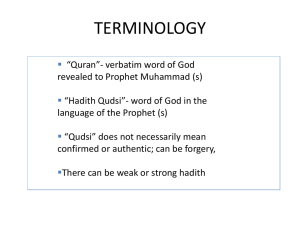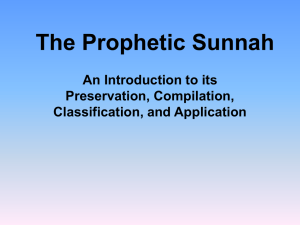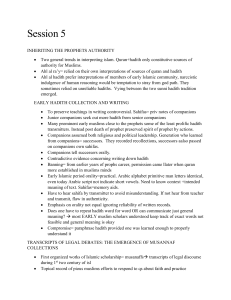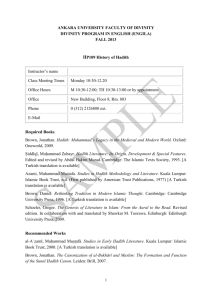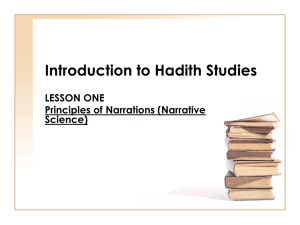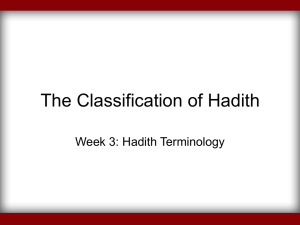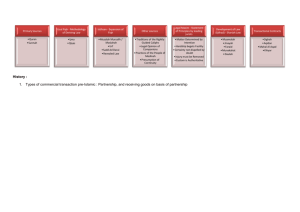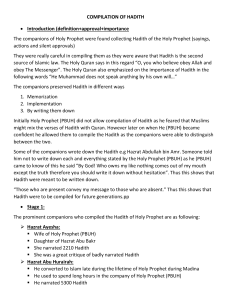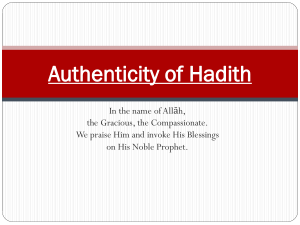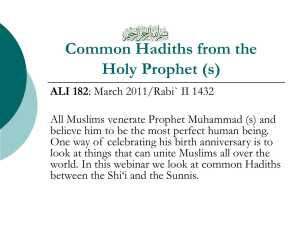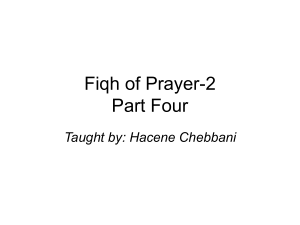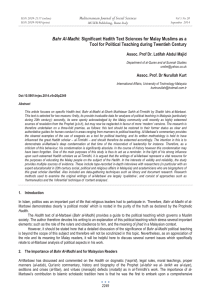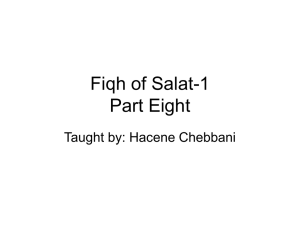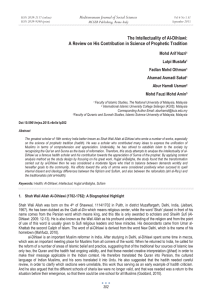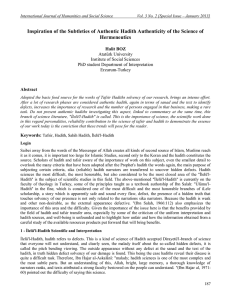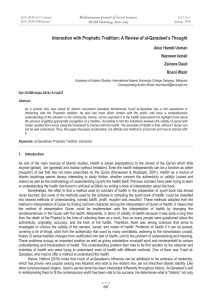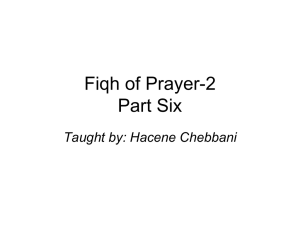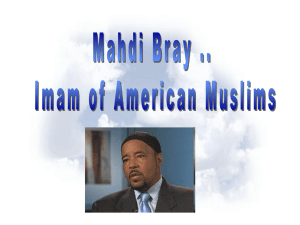Intro to Hadith
advertisement
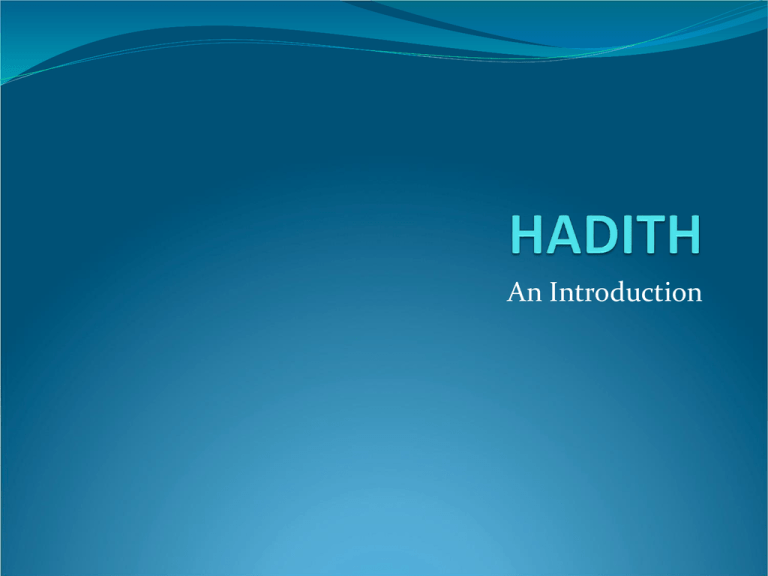
An Introduction What Are Hadith? Hadith represent the Sunnah of the Prophet (saw) The Sunnah of the Prophet (saw) are comprised of: His Statements His Actions His (tacit or silent) Approvals His Personal Characteristics Classifying Our Actions Halal Actions which are permissible, encouraged and rewardable Makrooh Detestable actions which are discouraged Mustahab Actions that are permissible and encouraged and rewardable based on your intention Mandoob These actions are neither halal or haraam Haraam Actions which are punishable if you engage in them; if you refrain you are rewarded Protecting the Hadith "We have, without any doubt, sent down the "Dhikr;" and We will assuredly guard it (from corruption)." (Surah Al Hijr, 15:9) Hadith have also been protected by people whom Allah has guided, such as Sh. Al-Albani and all the hufaaz (memorizers of al-Qur’an) Structure of Hadith Hadith Isnad Matn Taraf Structure of the Isnad Divine Revelation Statement of the Prophet (saw) Narration from a companion Transmission from a Tabi’een Transmission from a Tabi Tabi’een Other Various Reporters Collector of Hadith Classification of Hadith Sahih - authentic. Imam Shafi'i states the following requirements "each reporter should be trustworthy in his religion; he should be known to be truthful in his narrating, to understand what he narrates, to know how a different expression can alter the meaning, and to report the wording of the hadith verbatim, not only its meaning". Hasan Da’if - good: is the one where its source is known and its reporters are unambiguous. weak: a hadith which fails to reach the status of hasan. Usually, the weakness is: a) one of discontinuity in the isnad, or b) one of the reporters having a disparaged character, such as due to his telling lies, excessive mistakes, opposition to the narration of more reliable sources, involvement in innovation, or ambiguity surrounding his person. Maudu’ - fabricated or forged: is a hadith whose text goes against the established norms of the Prophet's sayings, or its reporters include a liar. Fabricated hadith are also recognized by external evidence related to a discrepancy found in the dates or times of a particular incident. Hadith Qudsi The special characteristic about this type of hadith is that it has Allah in the actual isnad. This type of revelation is kept different from Qur’an in that Hadith Qudsi: The Qur’an was revealed to the Prophet (saw) verbatim; that is, both its words and meanings are from Allah. The hadith qudsi was not a verbatim revelation; its words are from the Prophet (saw). The Qur’an was revealed via Angel Jibreel while the hadith qudsi may have been inspired by other ways, such as in the form of a dream. The words of the Qur’an are miraculous or inimitable while the words of the hadith qudsi are not of this nature. The Qur’an is recited in formal Prayers (salah) but the hadith qudsi cannot be recited in Prayers. On the authority of Abu Harayrah, from the Prophet (saw), who said: Allah said: “Spend (on charity), O son of Adam, and I shall spend on you. “(Bukhari and Muslim).
